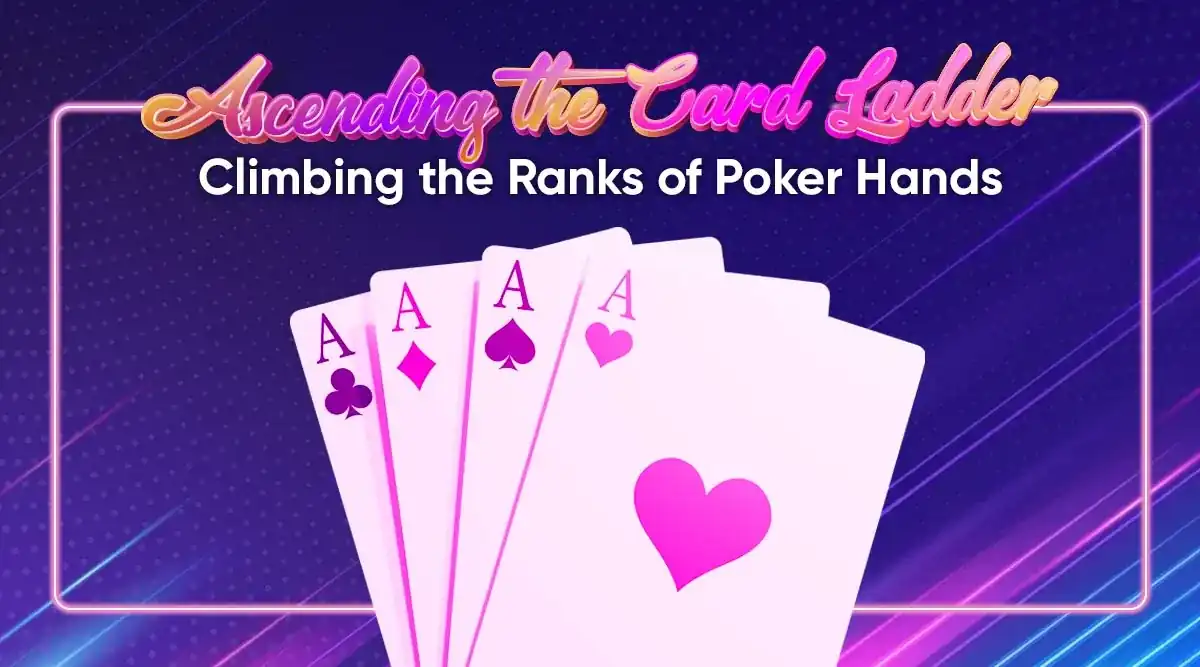
Poker, a game of skill, strategy, and a bit of luck has captured hearts worldwide. Although it’s often associated with neon lights and bustling casinos, the reality is much more diverse. From quiet home games to vibrant online platforms, poker transcends boundaries, welcoming players of all backgrounds.
Grasping poker hands ranking is akin to learning the alphabet of a new language. It forms the foundation of your poker strategy, directly influencing your decisions at the table. The better you know the ranks, the more calculated risks you can take, and the higher your chances of claiming the pot.
This guide aims to enrich your understanding of poker hands ranking, moving step by step through this crucial element of poker. We’ll cover everything from the game’s basics, various hand types, and their rankings, all the way to the tactical applications of this knowledge.
Poker Hands Ranking: The Basics of Poker Go First
Poker’s roots trace back to several older card games, the earliest of which originate in 16th century Persia. The game as we know it today began to take shape in the United States during the early 19th century. It has since evolved into numerous variants, yet the core concept of poker hands ranking remains a constant.
From texas holdem hands (Hold’em) and Omaha to Seven-Card Stud, poker comes in many flavors. Each variant offers unique twists, but all rely heavily on the knowledge of poker hands ranking. Whether you’re deciding to fold, call, or raise, it’s the strength of your hand relative to others that guides your move.
A standard poker deck comprises 52 cards, divided among four suits: hearts, diamonds, clubs, and spades. Each suit contains 13 ranks, ranging from the lowly 2 (also known as a “deuce”) up to the noble Ace, which can also act as 1 in certain situations.













